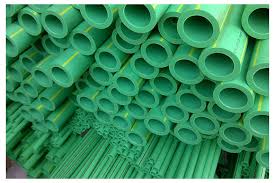Nov . 11, 2024 21:56 Back to list
hdpe pipe pdf manufacturer
Understanding HDPE Pipe Manufacturing A Comprehensive Overview
High-Density Polyethylene (HDPE) pipes have gained significant prominence in various industries due to their unique properties and versatility. This article delves into the manufacturing process of HDPE pipes, their applications, benefits, and considerations for selecting a reliable HDPE pipe manufacturer.
What is HDPE?
High-Density Polyethylene (HDPE) is a thermoplastic made from petroleum. Known for its high strength-to-density ratio, HDPE is resistant to impact, weathering, and corrosive chemicals, making it a suitable choice for various applications, including water supply, gas distribution, sewage disposal, and industrial applications. HDPE pipes are manufactured in various diameters and lengths, depending on the intended application.
The Manufacturing Process of HDPE Pipes
The production of HDPE pipes involves several steps, ensuring the final product meets specific standards for performance and safety.
1. Polymerization of HDPE The process begins with polymerization, where ethylene gas is converted into HDPE resin at high temperatures and pressures using catalysts. This raw material is then pelletized for easier handling.
2. Extrusion The next step is extrusion, where the HDPE pellets are fed into an extruder. The extruder melts the pellets and forms them into a continuous pipe shape. The pipe is then cooled and solidified using water or air.
3. Expansion and Testing After the initial formation, the pipes are expanded and calibrated to ensure precise dimensions. Quality control tests are conducted to inspect for structural integrity, flexibility, and tolerance against pressure. Common tests include impact resistance tests, hydrostatic pressure tests, and visual inspections.
4. Marking and Packaging Once the pipes pass quality control, they are appropriately marked according to industry standards. This step ensures traceability and compliance. The final phase involves packaging the pipes for transport to various distribution points.
Applications of HDPE Pipes
HDPE pipes are widely used across multiple sectors due to their inherent benefits
- Water Supply and Distribution HDPE pipes are ideal for potable water systems because they do not leach harmful chemicals. Their resistance to corrosion ensures longevity.
- Sewage and Wastewater The non-corrosive nature of HDPE makes it an excellent choice for sewage systems, effectively transporting wastewater without degradation.
- Gas Distribution HDPE pipes are used in gas distribution systems as they can withstand high pressure and are resistant to cracking.
hdpe pipe pdf manufacturer

- Industrial Applications These pipes are employed in various industries, including mining, agriculture, and chemical processing, due to their durability and flexibility.
Benefits of HDPE Pipes
2. Lightweight Compared to traditional materials like steel or concrete, HDPE pipes are lighter, making transportation and installation easier.
3. Flexibility The flexibility of HDPE allows it to withstand soil movement and ground vibrations, which is particularly beneficial in earthquake-prone areas.
4. Cost-Effectiveness Although the initial cost might be higher than some materials, the long-term savings on repairs and maintenance make HDPE a cost-effective choice.
Selecting a Reliable HDPE Pipe Manufacturer
When choosing an HDPE pipe manufacturer, consider the following factors
- Certifications and Standards Ensure the manufacturer complies with national and international standards, such as ISO and ASTM, which guarantee quality and reliability.
- Experience and Reputation Look for manufacturers with a proven track record in HDPE pipe production and strong customer testimonials.
- Product Range A reputable manufacturer should offer a diverse range of HDPE pipes suitable for various applications, ensuring you find the right fit for your needs.
- Technical Support Quality manufacturers provide technical assistance, guiding you in installation, maintenance, and any potential issues.
Conclusion
HDPE pipes represent a robust, versatile solution for modern piping needs, and understanding the manufacturing process and benefits can help consumers make informed decisions. Selecting a reliable HDPE pipe manufacturer is crucial to ensure that the pipes will perform effectively for many years to come.
-
High-Quality PVC Borehole Pipes Durable & Versatile Pipe Solutions
NewsJul.08,2025
-
High-Quality PVC Perforated Pipes for Efficient Drainage Leading Manufacturers & Factories
NewsJul.08,2025
-
High-Quality PVC Borehole Pipes Durable Pipe Solutions by Leading Manufacturer
NewsJul.08,2025
-
High-Quality PVC Borehole Pipes Reliable PVC Pipe Manufacturer Solutions
NewsJul.07,2025
-
High-Quality UPVC Drain Pipes Durable HDPE & Drain Pipe Solutions
NewsJul.07,2025
-
High-Quality Conduit Pipes & HDPE Conduit Fittings Manufacturer Reliable Factory Supply
NewsJul.06,2025

